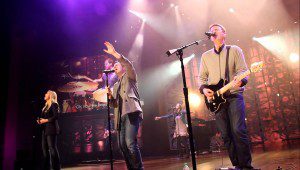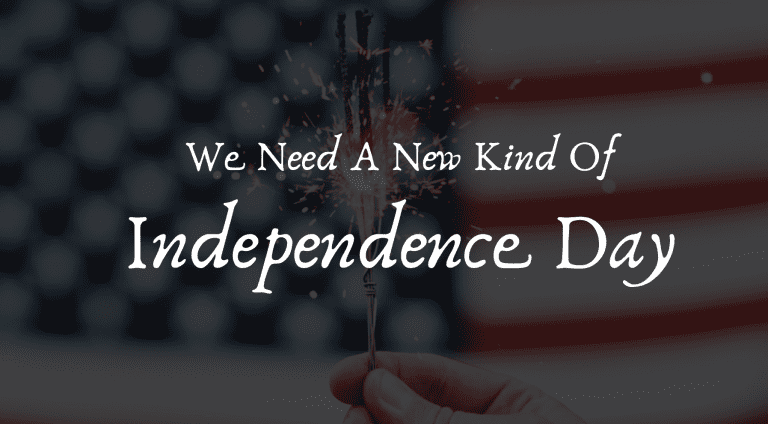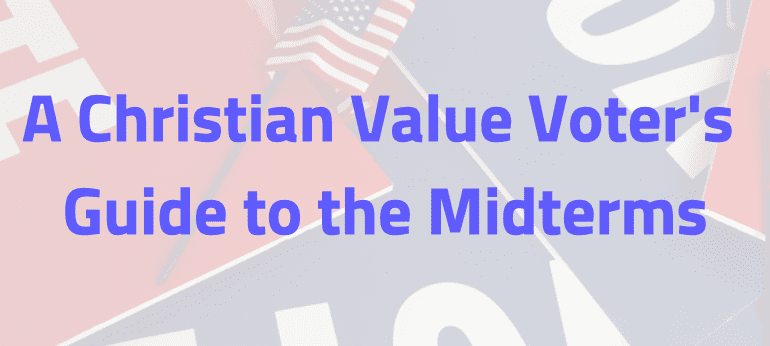Over the past few years as I have undergone a major transformation in my understanding of the world, my faith, and myself. Yet in the midst of all of the transformation, I have remained fairly committed to my identity as an evangelical Christian. Many people have asked why I have fought so hard to keep using this word that so many people in my progressive world view as unattractive. Likewise, many of my conservative brothers and sisters have insisted that as a queer, progressive, universalist, I cannot continue to honestly claim the label of evangelical. My standing here on the Evangelical Channel at Patheos has even been questioned by some, wondering why I would want to continue to be a rogue liberal voice in the midst of a generally politically and theologically conservative bunch of bloggers. I understand the questions. I understand the frustrations. And yet, in the midst of it all, I still consider myself an evangelical. Here’s why.
The modern Evangelical movement began in the mid-1900’s as a response to what has become known at the “Liberal/Fundamentalist Controversy.” A group of theologians and pastors who found themselves disenchanted by the lack of orthodoxy by liberal mainliners and the lack of critical thinking and cultural engagement by the fundamentalists created a distinct third-way movement of sorts that was committed to Christian orthodoxy as well as thoughtful and truthful engagement with the discoveries and innovations of the enlightenment and the ever changing culture. These individuals labeled themselves “Neo-Evangelicals” and began to form a new kind of Christianity that has grown to become among the largest and most powerful movements in Church History. But as with all labels, the group that they describe morphs over time. Naturally, as neo-Evangelicals engaged with culture and science, the theology and practice of these Christians changed significantly.
By 1975, the evangelical movement began to emerge as the new face of western Christianity, offering an appealing and authentic alternative that attracted millions of people. Throughout the late 70’s and early 80’s, many of America’s most prominent mega-churches were founded, including Willow Creek Community Church and Saddleback Church, which offered attenders a worship experience that rivaled any concert in town and preached messages that were focused not on abstract theological concepts, but practical and relevant teaching to help people connect with God and live an abundant life. These churches inspired hundreds of other visionary church planters to create similar congregations and by 1990; the mega-church evangelical movement was one of the most popular expressions of Christian faith in America.
In the early to mid 80’s, however, a group of prominent, politically driven fundamentalists formed an organization called The Christian Coalition of America, which now has become referred to as the birthplace of the “Religious Right.” Seeing the tremendous success of the moderate evangelical movement, this group of leaders forfeited their “fundamentalist” label and began to claim that they were “evangelicals.” Though most of the leaders of the evangelical movement stayed away from political issues in order to focus on proclaiming the Gospel and reaching as many diverse people as possible, these new “evangelicals” began to gain traction through their media presence and political clout and before we knew it, many of America’s evangelical laypeople were buying in to the philosophy of the “Religious Right.” Throughout the 90’s and up through the early 2000’s, this politically conservative, theologically fundamentalist movement became almost exclusively known in America’s consciousness as “evangelicals.”
Nonetheless, the moderate mega-church evangelicals continued to remain successful and vibrant communities of faith and began giving birth to a new generation of evangelicals who didn’t identify with conservative politics or fundamentalist theology. This crop of moderate, open-minded, culturally adept individuals continued to further the legacy of those early evangelicals, pushing boundaries theologically and practically, engaging and adapting to the new discoveries and shifts in culture. Out of this movement, a number of new movements emerged. There was the “emergent church” led by folks like Brian McLaren, Doug Pagitt, and Mark Scandrette. There was the “New Monasticism” led by Shane Claiborne and John Wilson Hartgrove. There was the “neb-reformed” movement that split from the emergent movement and was led by folks like Mark Driscoll. There were people like Rob Bell and Donald Miller emerging, who spoke and practiced their faith like evangelicals, but seriously began to embrace postmodern deconstructionism and the value of mystery and doubt. All of these evangelicals, following in the footsteps of the founders of the movement, began to embrace beliefs that fundamentalists considered heretical, things like allowing women in ministry and theistic evolution.
Thus, there were two competing brands of “Evangelical” in America: The moderate, open minded, generally politically neutral evangelicals and the conservative, fundamentalist evangelicals. Over the past decade, the “open minded” evangelicals have continued to grow at a grassroots level through the blogging and podcasting and have made a significant impact on the American religious landscape. However, the conservative/fundamentalist evangelicals have continued to dominate, largely in part to the massive amount of money and political power they have had access to, and has come to generally own the label of “Evangelical” in America’s consciousness. In recent years, many progressive evangelical leaders have grown cynical and tired of the constant culture and political wars launched by our fundamentalist brothers and sisters and have decided to reject the label of evangelical altogether. While this is understandable, for me, this has never really seemed to be a possible option. Because I really, really believe and identify with the charisma, ethos, and vision of those early evangelicals. To be a people that are deeply committed to our theological roots as Christians, but are open and ready to engage our ever expanding and changing new world. To be a people committed to living lives that exemplify the Gospel in every arena. To be a people that are truly of the culture, for the culture. People that attract others to Jesus because of the way we live our lives as authentic, informed, and productive members of our society. People that are thoroughly Christian, but also willing to rethink, reform, and renew the way that we live and practice our faith.
The truth is that “evangelical” has never been officially defined as denomination or organization and no one gets to exclusively own the label. Not the National Association of Evangelicals, the Alliance of Confessing Evangelicals, the Evangelical Association, the World Evangelical Alliance, the Gospel Coalition, the Southern Baptist Convention, the Evangelical Lutheran Church of America, or the Revangelical Movement. That’s the beauty of it. It’s not a neatly defined brand of people. One movement, brand, or organization can never lay claim to be the “true” evangelicals. Instead, it’s a way of incarnating Christianity. Its values are cultural engagement, charismatic worship, open-mindedness, and commitment to our roots as Christians. There are millions of evangelicals around the world- some of them are Baptist, Methodist, Episcopal, Anglican, Reformed, Non-Denominational, and Catholic. Some are politically conservative and some aren’t. Some believe in inerrancy and some don’t. Some are pro-gay marriage and some aren’t. But no one get’s to decided who is in and who is out based on theology or politics. Instead, evangelical is an ethos. A style of Christianity. Any theological system or political affiliation can fit within its borders. Because being an evangelical is less about a theology or worldview and more about how we chose to live those things out.
In the midst of all of this, however, there simply has to be some defining factors that determine who is or is not an evangelical. What are the distinct ways that evangelicals live out our faith in the world? What makes us different? Though I believe it’s nearly impossible to every really create a single definition of what makes someone an evangelical, I want to offer this very general set of attributes that I think pretty universally describe what it means to be an evangelical Christian, based of the roots and trajectory of the movement. An evangelical church could likely be described as:
- Passionate and Experiential Worship
- Socially Minded and Justice Oriented
- Practical and Culturally Engaged
- Intellectually Honest and Open
- Evangelistic and Attractional
- Communal and Personal
Based on this imperfect set of attributes, you can see that many groups of Christians fit the bill. Most Southern Baptist Churches today would fit these categories, as well as many churches in the progressive Disciples of Christ denomination. Saddleback Church, Lakewood Church, Fourth Baptist Church, and Church of the Resurrection (United Methodist Church) all fit these descriptors, even though each of them is distinctly different when it comes to their theology, polity, and political engagement. Rob Bell, Russell Moore, Bill Hybels, Rachel Held Evans, Bishop T.D. Jakes, Steven Furtick, Andy Stanley, Stan Mitchell, Lecrae, Brian McLaren, and Eric Mason all fit the bill. It’s literally impossible to claim ownership of such a slippery term, but I still believe it is a very useful description. Because I know what to expect in an evangelical church. I know how I will be engaged and I know how to worship. I love our music, our style, and our sermons. It’s this tradition that helps me best connect with God as a 21st century, white, American, millennial Christian. It’s not for everybody. It’s not the only way to follow Jesus in the world. But it is the way that I, and millions of other Christians of a plethora of views and beliefs, best connect with God and engage the world. And that will not be changing anytime soon.
My point is this. I am an evangelical. Many Western Christians are. The stream is wide. The tent is large. “Evangelical” does not and cannot refer to a singular network or denomination, but rather is a term that describes how we live out our Christian faith in the world. There are many Christians who aren’t evangelical, and that’s absolutely beautiful. There are Eastern Orthodox churches that are generally not interested in adapting and engaging in culture or being particularly attractional. There are many mainline Presbyterian churches that don’t have “passionate and experiential worship” or focus a ton on evangelism (at least not in the same way), and that’s okay too. The Christian family is wide and diverse, reflecting the infinite bigness and diversity of the God that we worship. One way is not better than another. Everything has a place and everything belongs.
But as for me and the way I chose to live out my faith, I am an evangelical and I am here to stay.
**Note: I am only scratching the surface of the complex history and development of the modern Evangelical movement. For more detailed accounts, I recommend reading:
- “Mine Eyes Have Seen The Glory: A Journey Into The Evangelical Subculture in America” by Randall Balmer
- “The Age of Evangelicalism: America’s Born-Again Years” by Steven Miller
- “Apostles of Reason: The Crisis of Authority in American Evangelicalism” by Molly Worthen
- “Global Evangelicalism: Theology, History, and Culture in Regional Perspective” by Donald Lewis and Richard Pierard
- “Power, Politics, and the Fragmentation of Evangelicalism: From the Scopes Trial to the Obama Administration” by Kenneth Collins












